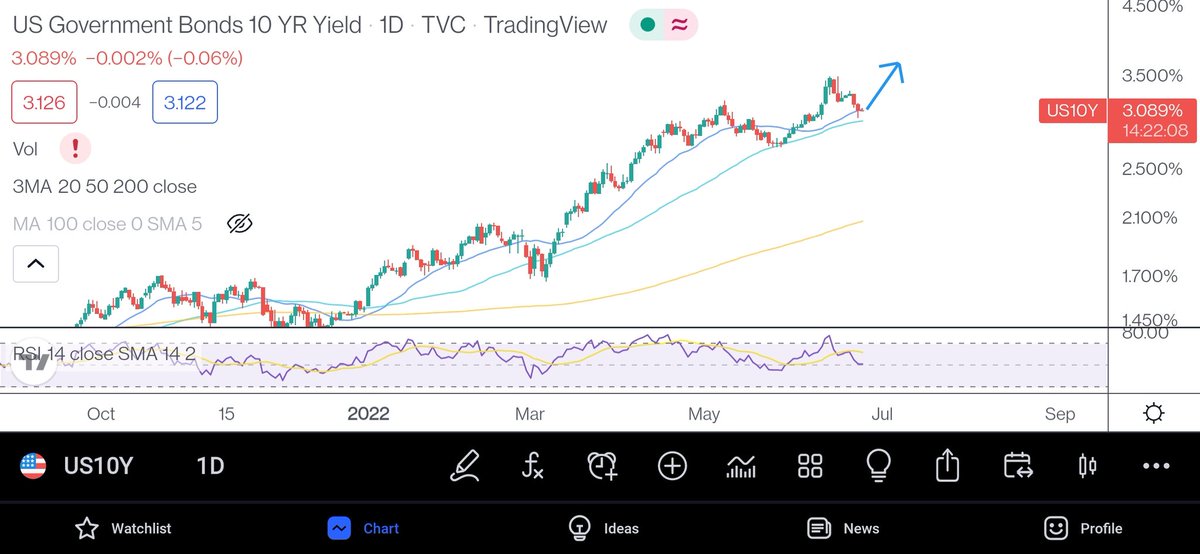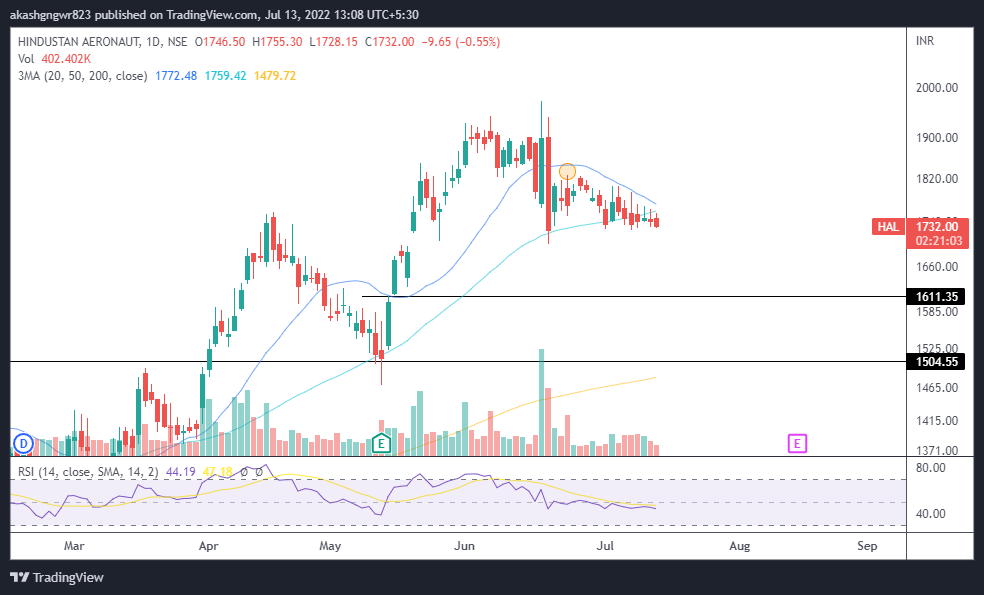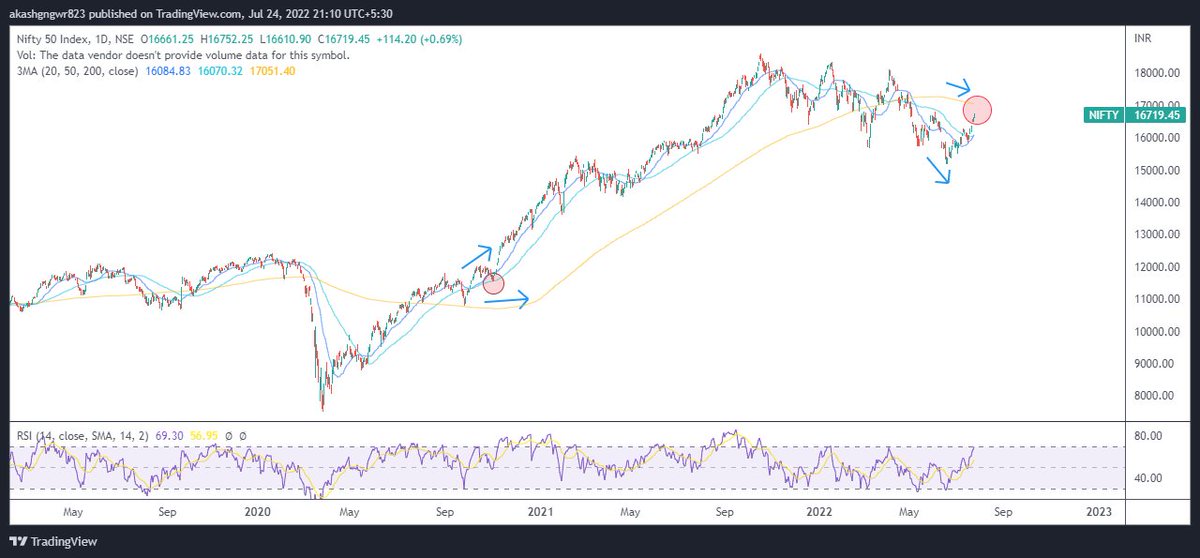
Time for a new thread on the possibilities I am looking for.
Do read it completely to understand the stance and the plan.
This thread will present a highly probable scenario of markets for the upcoming months. Will update the scenario too if there is a significant change in view in between.
— Aakash Gangwar (@akashgngwr823) May 15, 2022
1/n https://t.co/jfWOyEgZyd

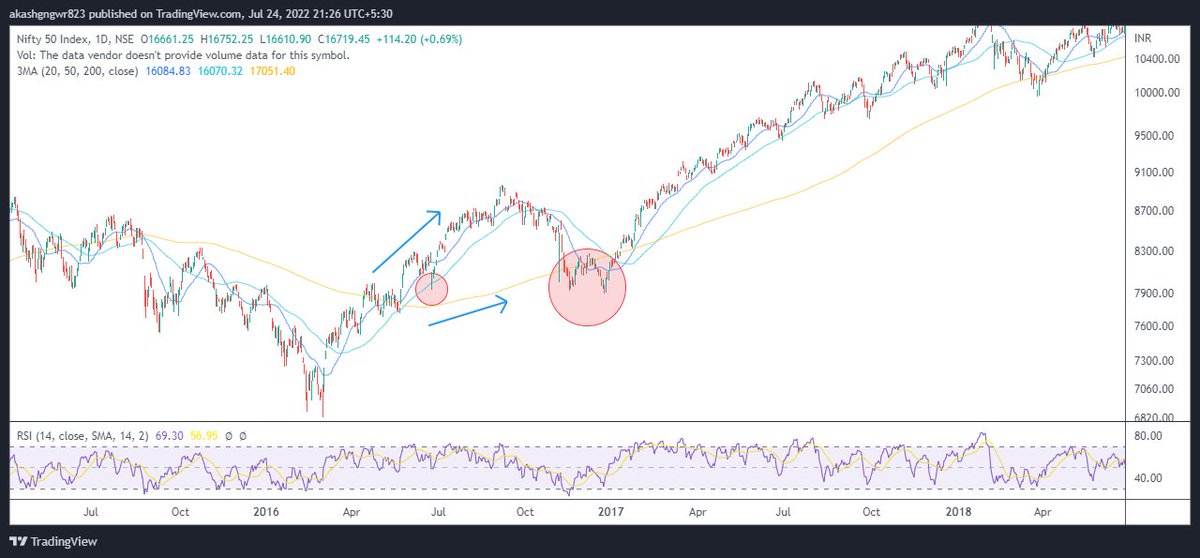

1. Moving averages structure- The moving average structure is a standard corrective fractal which we have already seen in Nifty daily (October - November 2021), Nasdaq weekly (Jan 2022). As of now, 100 WMA looks inevitable and that coincides with the bottom of megaphone.
— Aakash Gangwar (@akashgngwr823) May 15, 2022
2/n pic.twitter.com/O1eAng99Vz
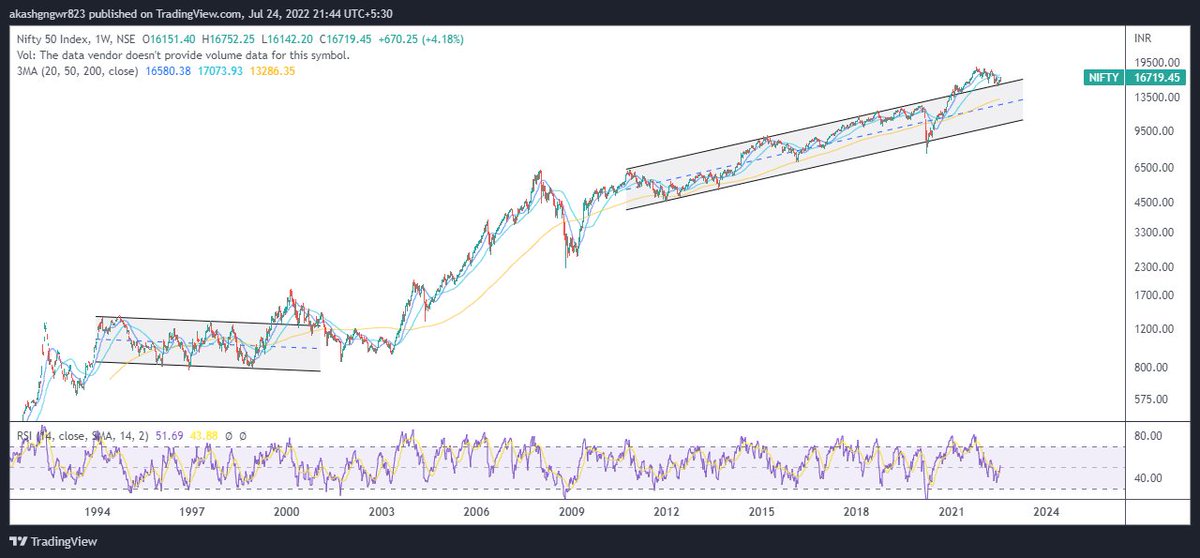
More from Aakash Gangwar
#CNXIT https://t.co/bJeKTMoCji
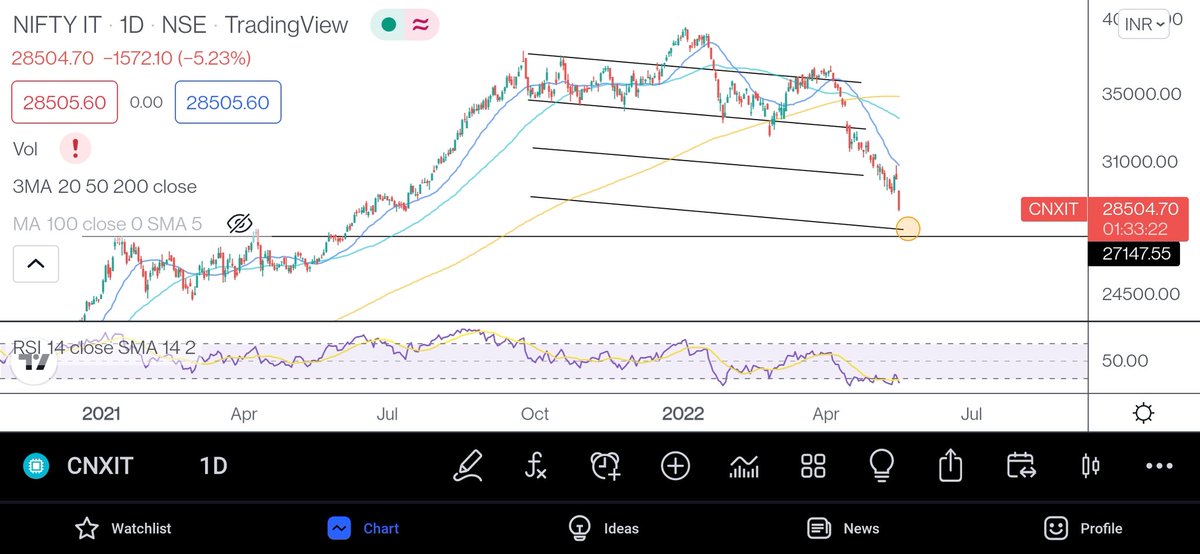
The current formation might look like a falling wedge, but the way moving averages are placed, it looks like a falling wedge which can lead to a parabolic downmove for the marked target. #CNXIT pic.twitter.com/GmXOI3HmUN
— Aakash Gangwar (@akashgngwr823) May 10, 2022
1. Long term channel top.
2. Curvature shift of 20 and 50 WMA along with price hitting 20 WMA frequently.
3. Overall weakness in IT sector.
4. For reference, study reliance top in August 2020, study Nasdaq Weekly chart and the top made in Nov 2021.
#tataelxi https://t.co/RmJa5LrdAP
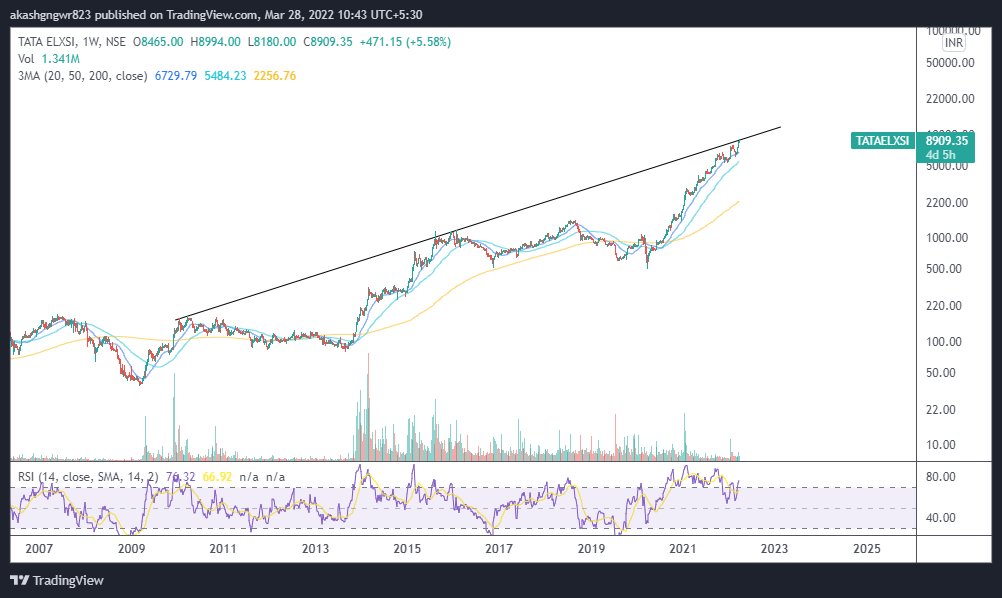
I have traded the current fav Tata Elxi from 2200 to 4500. No regret on missing out rest of the move because I am not an investor. Now there are many technical red flags. I might be trolled but 10.5k looks max target while 5k or 3-4 years of sideways looks inevitable.#tataelxi
— Aakash Gangwar (@akashgngwr823) March 26, 2022
#BTC https://t.co/Yd4iZqC42s
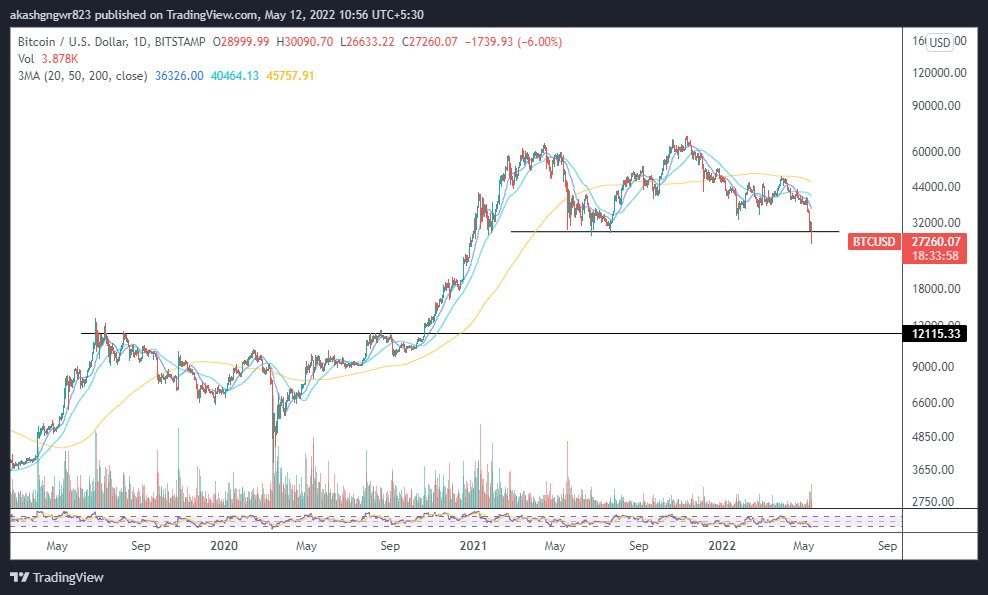
I don't know why Crypto YouTubers are so bullish on BTC right from the top \U0001f61b while the charts are saying something else. Won't be surprised to see the entire retracement of the marked rise. #BTC pic.twitter.com/SQJkjAfZme
— Aakash Gangwar (@akashgngwr823) April 30, 2022
More from Screeners
Since market cap of IRCTC is good, I reduced the move rule from 40% to 30% in this case. https://t.co/qzL5rgmtg8
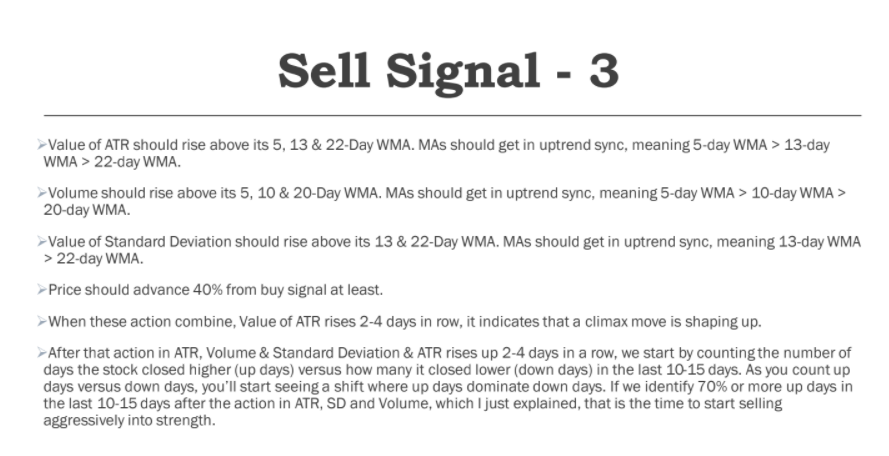
Just a small doubt . I sold Yesterday thinking it was a climax 6% move . How did you decide to sell today ?
— Volatility and Volume Trader (@VolVolatTrader) September 7, 2021
Any rules where you sell positions . Just to learn
You May Also Like
Independent and 100% owned by Joe, no networks, no middle men and a 100M+ people audience.
👏
https://t.co/RywAiBxA3s
Joe is the #1 / #2 podcast (depends per week) of all podcasts
120 million plays per month source https://t.co/k7L1LfDdcM

https://t.co/aGcYnVDpMu

A thread 👇
https://t.co/xj4js6shhy
Entrepreneur\u2019s mind.
— James Clear (@JamesClear) August 22, 2020
Athlete\u2019s body.
Artist\u2019s soul.
https://t.co/b81zoW6u1d
When you choose who to follow on Twitter, you are choosing your future thoughts.
— James Clear (@JamesClear) October 3, 2020
https://t.co/1147it02zs
Working on a problem reduces the fear of it.
— James Clear (@JamesClear) August 30, 2020
It\u2019s hard to fear a problem when you are making progress on it\u2014even if progress is imperfect and slow.
Action relieves anxiety.
https://t.co/A7XCU5fC2m
We often avoid taking action because we think "I need to learn more," but the best way to learn is often by taking action.
— James Clear (@JamesClear) September 23, 2020

